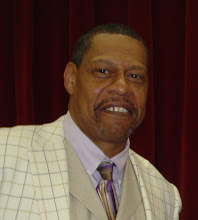If Karl Rove was Bush’s brain, then Dick Cheney must certainly be Bush’s spine. The rogue VP whose office is conducting its own foreign policy, domestic agenda, and war-mongering has been the architect of many of the debacles of this administration. The ever bellicose chicken-hawk continues to pump his chest with heroic prowess, yet when given the opportunity to display this warriors courage decided to dodge the war. He was needed in Wyoming to fight the local VC insurgents who were planning a behind the lines enemy offensive.
June 29, 2007 - Dick Cheney is like “Zelig,” the Woody Allen character with the uncanny ability to turn up everywhere. We always suspected his dark influence throughout the government, and now it’s been documented chapter and verse in an exhaustive series in The Washington Post. Cheney operates largely in secret, and because he is such a skilled bureaucratic infighter, he’s able to do end runs around everybody, including President Bush, who does nothing to rein in his evil twin.[1]
Dick Cheney articulates the Neo-Con wingnut philosophy in a manner that limits the choices George Bush is allowed to consider. A President is bombarded by information, opinions, and opposing views on every issue that crosses his desk. It would be a monumental task to keep abreast of all of this information for a very intelligent person, but for a C, legacy student it would be impossible. So like many of his predecessors that have lacked intellectual curiosity, Mr. Bush relies on close allies to direct his decisions. This is why loyalty is valued more than competency in his administration. It is more important to protect the President’s incompetence than to be qualified to make correct decisions. This is why Mr. Bush has never held anyone accountable in his administration for anything, no matter how calamitous the results.
Cheney, 66, grew up in Lincoln, Neb., and Casper, Wyo., acquiring a Westerner's passion for hunting and fishing but not for the Democratic politics of his parents. He wed his high school sweetheart, Lynne Vincent, beginning what friends describe as a lifelong love affair. Cheney flunked out of Yale but became a highly regarded PhD candidate in political science at the University of Wisconsin -- avoiding the Vietnam War draft with five deferments along the way -- before abandoning the doctoral program and heading to Washington as a junior congressional aide.[2]
Mr. Cheney personifies the tough western American image; he manages by fear and intimidation. He is what George Bush wishes he could be, someone feared and whose authority goes unchallenged. Cheney has shown a total disregard for any authority outside his own, as evidenced by his statement of being a separate branch of the government. It has been asserted that Cheney is the engine that makes the train goes, but I disagree. Cheney asserts a certain level of power over Bush, but not by overt means. He asserts this power through the limited choices he provides Bush and through his evisceration of any competitive opinions. By providing Bush with limited choices that Cheney has condensed through his input at the staff level, he focuses the President’s agenda to only the options he provides.
We should not be fooled; Cheney is providing the options to policies the President has signed off on in broader terms long ago. Cheney gives direction and targets for Bush’s overall agenda. An agenda that Bush brought with him to Washington, one that Cheney provides methods for implementation. It is in these methods that Cheney exerts influence over Bush. When a situation may offer two options; one using diplomacy and the other projecting American military power, these are the arguments Cheney has prevailed in. This is why I call him Bush’s spine; he emboldens Bush to become the “warrior President”. I just find it strange that when both men had the opportunity to display their warrior prowess, both chose to decline. It’s easy to be tough with someone else’s life.
The vice president's reputation and, some say, his influence, have suffered in the past year and a half. Cheney lost his closest aide, I. Lewis "Scooter" Libby, to a perjury conviction, and his onetime mentor, Donald H. Rumsfeld, in a Cabinet purge. A shooting accident in Texas, and increasing gaps between his rhetoric and events in Iraq, have exposed him to ridicule and approval ratings in the teens. Cheney expresses indifference, in public and private, to any verdict but history's, and those close to him say he means it.[3]
Many believe that Cheney’s influence is waning based on a number of calamities in the past year or so concerning his office and his lost of key personnel, I am not so sure. I think his influence is decreasing, but not because of any change in the relationship between Bush and Cheney, but because as Bush surveys his time in office and its place in history he is discovering he has little if any positives. Hence his willingness to sign off on the North Korea deal, even though Cheney and his wingnuts were totally against it. It’s strange how when a President finally acknowledges the finality of his presidency he wants to become the statesman he never was before. That whole legacy syndrome thing being played out on the world’s stage. Bush will need less spine and more brain to try to recoup any semblance of a successful presidency.
[1]http://www.msnbc.msn.com/id/19507575/site/newsweek/
[2] http://blog.washingtonpost.com/cheney/chapters/chapter_1/
[3] http://blog.washingtonpost.com/cheney/chapters/chapter_1/
Tuesday, October 16, 2007
Cheney – George Bush’s Spine
Posted by
Forgiven
at
9:24 AM
![]()
Labels: Dick Cheney, George W. Bush, Karl Rove, Neo-Conservatives, Scooter Libby
Subscribe to:
Post Comments (Atom)







 Stumble It!
Stumble It!
No comments:
Post a Comment